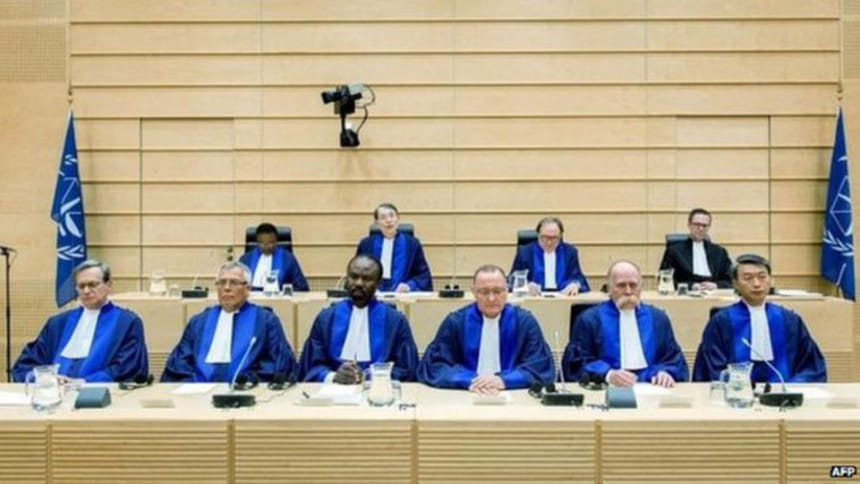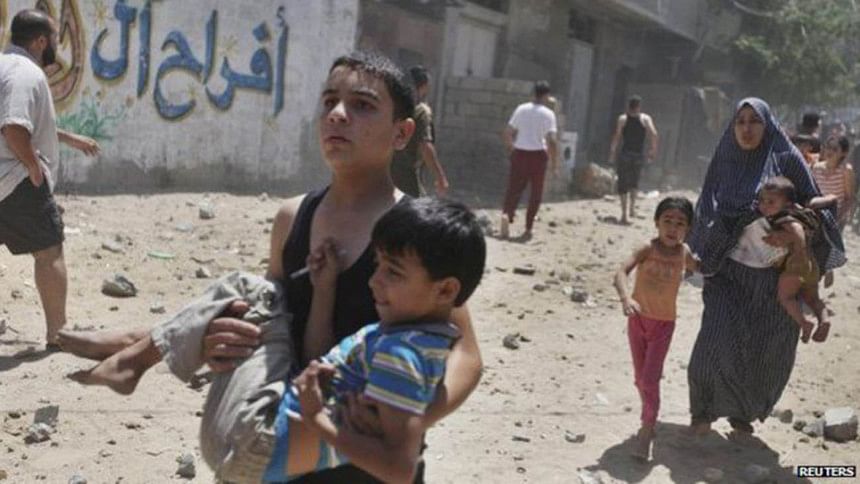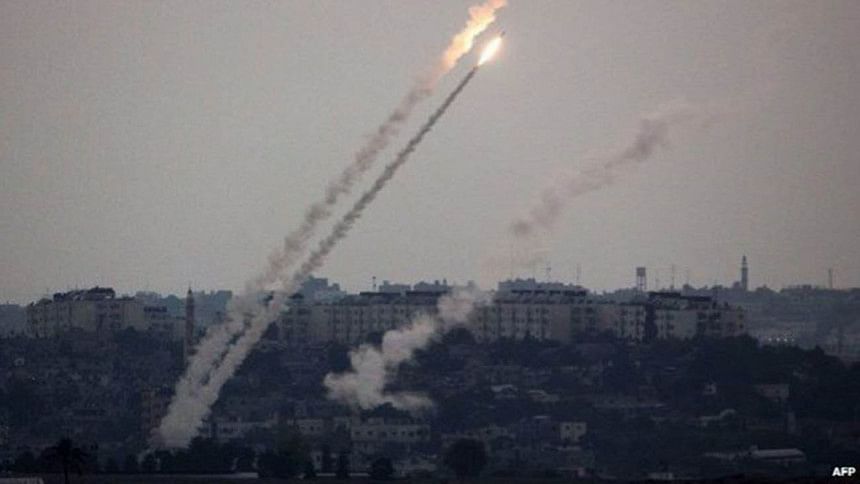Palestinians join war crime court

The Palestinians have formally joined the International Criminal Court (ICC), a key step towards being able to pursue Israelis for alleged war crimes.
Foreign Minister Riad Malki attended a low-key ceremony at The Hague.
The ICC's chief prosecutor launched a "preliminary examination" in January, after the Palestinians signed its founding treaty, the Rome Statute.
Palestinian officials said they would wait for the outcome of the review before considering further action.
Although Israel has not ratified the Rome Statute, its military and civilian leaders could face charges if they are believed to have committed crimes on Palestinian territory.
Palestinian militants will also be open to prosecution.
'Slow' procedures
On Wednesday, the Palestinians became the 123rd member of the ICC, 90 days after they lodged a declaration accepting the jurisdiction of the court over alleged crimes committed in the occupied territories of East Jerusalem, the West Bank and Gaza from 13 June 2014.

This covers events prior to and during last summer's 50-day conflict between Israel and militants in Gaza, which left more than 2,200 people dead.
On 16 January, ICC chief prosecutor Fatou Bensouda announced that she had opened a preliminary examination to determine whether the criteria had been met to merit pursuing a formal investigation.
There are "no timelines" for the preliminary examination, according to the ICC, and Malki told Voice of Palestine radio on Wednesday: "I don't want to disappoint our people, but the ICC procedures are slow and long and might face lots of obstacles and challenges and might take years."
There are reports that the Palestinians are set to lodge a complaint against Israel at the ICC, but experts say only the prosecutor and in some instances its judges have the authority to decide what cases to pursue.
'Objectionable' pressure
The Palestinians faced strong opposition over their decision to join the ICC, with critics claiming it undermined chances for a negotiated peace deal.
The US stated that it did not believe Palestine was a sovereign state and therefore should not qualify to join, and warned that it would cut funding to the Palestinian Authority.

Israeli Prime Minister accused the Palestinians of choosing "a path of confrontation" and froze the transfer of about $400m (£270m) in tax revenues collected on behalf of the PA between January and March.
On Wednesday, Human Rights Watch called on governments seeking to penalise the Palestinians for joining the ICC to end their pressure.
"What's objectionable is the attempts to undermine international justice, not Palestine's decision to join a treaty to which over 100 countries around the world are members," said Balkees Jarrah, the US-based group's international justice counsel.
Human Rights Watch said it had documented unlawful attacks, including some that it believed were war crimes, during the 2014 hostilities in Gaza. But, it added, both sides had "yet to make meaningful progress in providing justice for serious laws-of-war violations".
Israeli military inquiries into the conflict are ongoing, and the Israel government has announced an investigation by the state comptroller. The PA and Hamas, the militant group that dominates Gaza, are not known to have carried out any investigations.
Action is also being considered by the Palestinians against the expansion of Jewish settlements in the West Bank and East Jerusalem - land Israel has occupied since the 1967 Middle East war.
Israel's government is expected to use third-party NGOs to pursue their own complaints against Palestinians in the ICC.

 For all latest news, follow The Daily Star's Google News channel.
For all latest news, follow The Daily Star's Google News channel. 



Comments